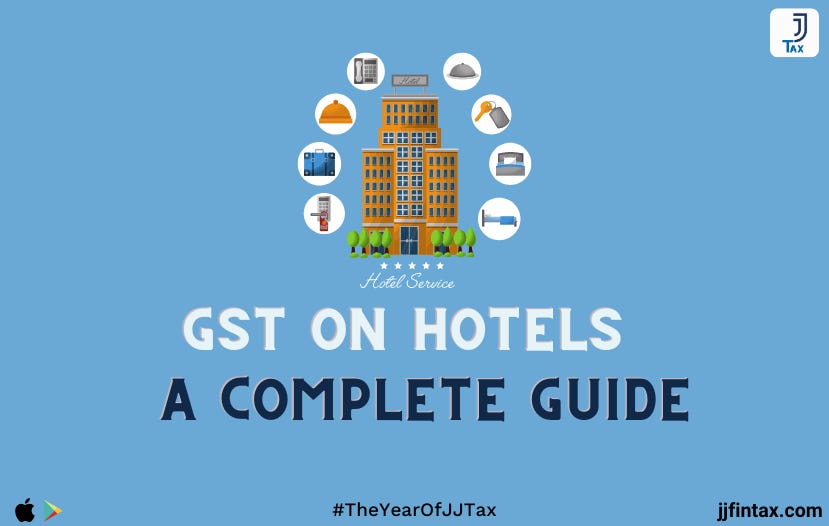Hey there!
Hope you’re excited about your long-awaited trip, don’t forget to go through your checklist!
You may think that you’ve got it all covered, but are you sure your hotel budget is in place?
With the recent amendments in GST rates, it is important for you to reevaluate your budget. Here is a complete guide on GST on hotels that you need to make a note of as you plan your getaway.
G.S.T. Rates in the Hotel and Tourism Industry
W.E.F July 18, 2022, Hotel accommodations are subject to G.S.T. at 12% for room rent up to 7,500 per day having SAC code 9963. For room rent above 7,500 or more, the GST rate is 18%.
The government cut the G.S.T. rates for the top rank of hotel room rates in 2019 as part of its attempts to provide the tourism/hotelier industry wiggle room. And since 2022, the government will charge the lowest class of room rents directly by imposing a stiff 12% GST on those units that are currently tax-exempt. (Room rent up to Rs.1,000 per day)
What does hotel accommodation include?
Any hotel, inn, guesthouse, club, camping, or commercial entity utilised for residential or lodging purposes is considered a hotel. Accommodation is charged each day based on per-unit pricing.
When are hotels not required to charge G.S.T.?
G.S.T. will not be levied on hotels that do not require GST registration to provide housing services beginning July 18, 2022. These businesses, however, can obtain Voluntary GST Registration.
G.S.T. Rates on Hotel Accommodation from 18th July 2022 onwards
In its 47th meeting, the GST Council voted to repeal the exemption for room rents ranging from Rs 1000 to Rs 5000 per day. Furthermore, the GST Rate Changes were implemented, which had an impact on the Hotel and Tourism Industry, either directly or indirectly.
GST Advantages and Disadvantages
Overall, it benefits both consumers and businesses. You may learn more about the GST Benefits for Businesses and Consumers.
It clarifies tax rates and makes tax liabilities easy for consumers to grasp.
GST will make it easier for businesses to comply with government requirements.
When travelers make vacation plans, tax rates will be simpler to comprehend.
The Indian hotel and tourism business would become more effective and lucrative if it is streamlined.
It minimizes the compounding repercussions that raise travel expenses, diminishes hotel margins, and raises input costs.



